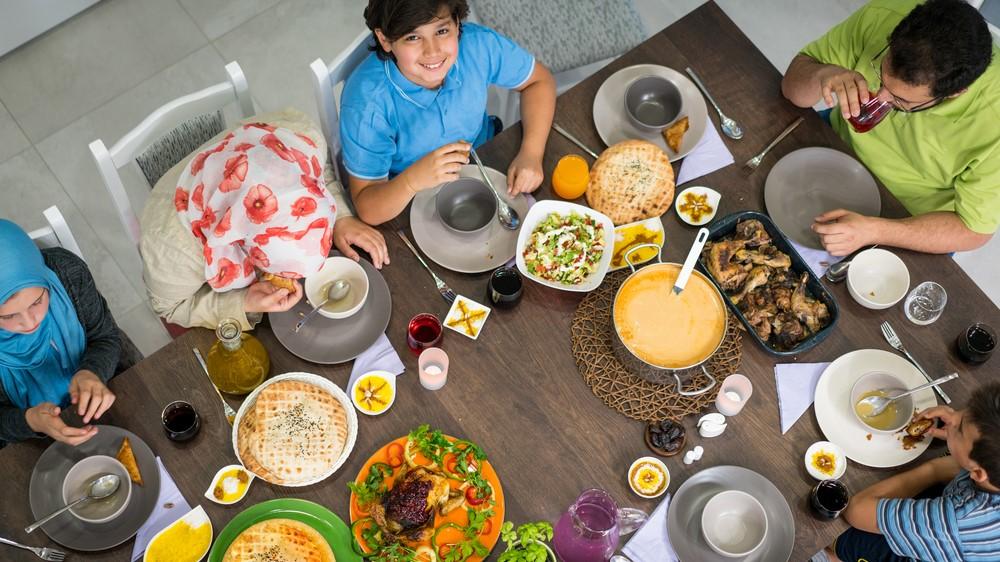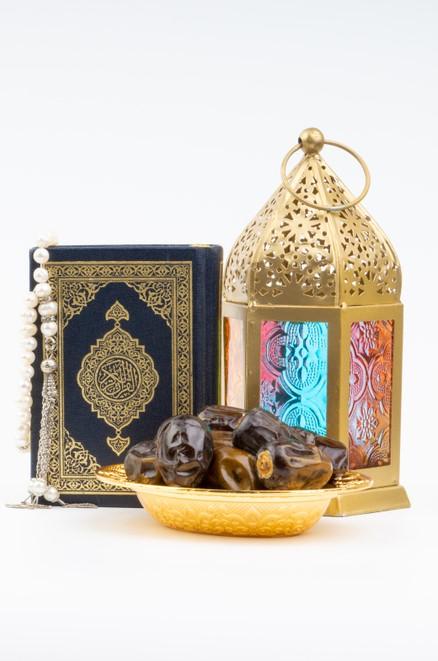
Ramadan involves fasting from sunrise to sunset, with Muslims abstaining from eating and drinking anything at all during this time.
Ramadan is a month long which means Muslims need to take great care of their diet to ensure their bodies are able to cope with the adjustment of not eating or drinking during the day. After all, going from eating and drinking as normal to completely reversing your schedule will take a toll, making it essential to implement healthy habits to properly sustain yourself throughout this month-long fast.
It’s important to recognise the impact that abstaining from drink and food during Ramadan has on your body so that you can take the correct measures to balance your body. When you don’t eat for long periods of time and the calories from your most recent meal have been used up, your body will start to use the carbohydrates and fat it has stored in your liver and muscles. This will provide you with energy to go about your day.
You may initially feel pangs of hunger, especially at times of the day your body is used to eating at, but after a week or so, these feelings should subside as your body gets used to its new routine. It’s also common to experience constipation as their digestive system slows down in accordance with the new eating regime, but you easily mitigate this by making healthy meal choices for Suhur and Iftar.
The next step your body will take is to preserve the water it already has, and to do this, your kidneys will restrict the number of times you need to pee. It’s inevitable that you will lose some water through sweating, particularly in summer, but your body has processes in place to conserve fluids.
Despite this, it’s common for Muslims to experience mild dehydration during Ramadan. . Drinking water during Ramadan at Suhur and Iftar is highly beneficial as well as extremely necessary, which will mean your body can replenish itself and there will be no negative health effects.
When can you eat and drink during Ramadan?
Iftar Meals
During Ramadan, what to eat at Iftar is one of the biggest decisions you need to make. Iftar is the meal Muslims eat after the sun has set and marks the breaking of the fast. Prophet Muhammad (PBUH) traditionally ate dates to signal the start of the Iftar meal, and this is something many Muslims continue to do to this day. Whilst this is the traditional way, it’s also a healthy choice. Dates are packed with fibre which helps aid digestion, and they’re rich in fructose which helps to replenish your body’s blood sugar levels.
After dates have been eaten, foods like rice are commonly eaten alongside fish, meat, and vegetables. It’s important to eat a variety of your five a day to ensure your body receives the nutrients it needs, as well as slow-releasing carbs to quell feelings of hunger later in the day. There may be a temptation to eat lots of high sugar, high fat foods during Ramadan, but it’s important you don’t give in.

These types of food will do nothing in the way of nutrition, and you could end up gaining weight during Ramadan. Instead, save the sweet treats for the Eid ul-Fitr celebrations at the end of the fast.
Try and stick to foods like soup, eggs, and beans. You should also drink copious amounts of water to get your hydration levels back up.
Suhur is the meal that is eaten before the sun rises, and it is this that will tide you over throughout the day. With this in mind, it’s vital that you’re aware of healthy foods to eat Suhur, and it’s even more important that you don’t skip it. It’s understandable that you may be tired, especially in summer when Suhur needs to be eaten before 5 am, but if you fail to eat this meal, you will find that your body struggles massively during the day until you get to Iftar.
Oats, eggs, cereals, yoghurt, wholegrain bread, fruit, and nuts are all great foods to eat at Suhur. They’re healthy and fibrous, but they’re also slow-releasing and filling, giving you the nutrients you need to go about your day.
It’s a good idea to avoid caffeine at this time, even if you normally have a cup of coffee with your breakfast, as this can make you feel hungrier and thirstier during the day. Instead, drink lots of water to provide your body with enough hydration to keep you going.
If you make healthy decisions for mealtimes during Ramadan, there will be no negative side effects on your body.
To help you through Ramadan in the healthiest way possible, here are some top nutrition and eating tips you can take on board:
These fasting tips for Ramadan should help you see Ramadan through in a healthy manner. Of course, if you find that you feel dizzy during the day, or if you feel light-headed,faint, or fall ill, make sure you drink water immediately. Observing the Ramadan fast is important, but Allah (SWT) always has your best interests in mind and requires you to do whatever you need to remain in good health. If you do experience severe dehydration, you may pay Fidya to make up for the broken fast.
The team at ILM wishes you a happy and healthy Ramadan and may Allah (SWT) bless you for your efforts.